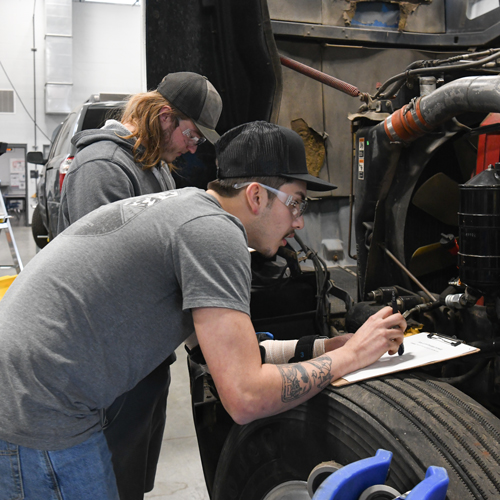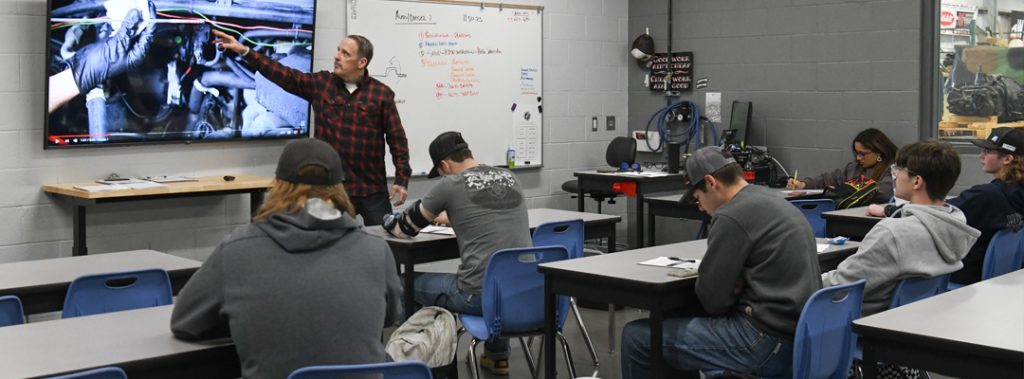Tag: diesel tecnhology
Diesel technology teacher bridges gap between industry and education


Paul Rood always liked cars, so it came as no surprise that after high school graduation in the late 1980s, he enrolled in Universal Technical Institute’s two-year auto diesel degree program and discovered his niche in heavy duty diesel repair.
“I never thought about being a diesel mechanic. Back then, it really wasn’t on my radar for a career,” said Rood. “But I took a diesel class for the heck of it and ended up really liking it.”
After 30 years working for top-tier employers like Peterbilt and Knife River, teaching was never on his radar. But somehow, towards the end of the COVID-19 pandemic, the CTE administrator at Kuna’s Swan Falls High School got a hold of his resume. The person who had been teaching diesel technology resigned unexpectedly, leaving a vacancy for a teacher with industry experience.
“All of my family and friends thought I’d be perfect for teaching, but I’d never really considered it until then,” said Rood. “When I went in for the interview, I was so impressed with the facility, I thought, ‘what the heck?’ and gave it a shot.”
I’m very tenacious, and what I envisioned when I took the job three years ago is pretty much where we’re at right now.
Paul Rood
Though Rood immediately took to the classroom and found students liked and respected him because of his experience, he found pursuing his Degree Based Career Technical Certificate through Idaho State University to fulfill the certification requirements was the most challenging part of his transition from industry veteran to educator.
“I don’t have a college background, so it was really frustrating to learn how to use software and technology platforms that I simply didn’t have to learn or use in the shop,” said Rood. “I think this is a glaring issue not only for me, but for other trades professionals trying to bring their experience to the classroom. Professors simply take for granted this gap in knowledge.”
Fortunately, Rood’s mentors from the Division, Bill Brown and Sandy Murin, helped him navigate the expectations of college-level work while simultaneously acclimating to being a new teacher.
“That first year was pretty challenging, but I always felt like Bill and Sandy were in my corner,” said Rood. “Bill especially helped me learn to play the game, and he’s talked me off the ledge more than once.”
In addition to his mentors, Rood also received strong support from the community and his technical advisory committee.
“Western States Cat, Knife River, Sun Rock, Western Trailer have all been so helpful since I’ve started this program. They donate parts and loan me equipment and give the kids opportunities like job shadowing, mentorship positions, and academies that lead to paid positions when they graduate,” said Rood. “I want my kids to aim high and feel comfortable rubbing elbows with people in prestigious shops. These partnerships really give them that.”
With only two classes left to complete his university coursework, Rood sees the light at the end of the tunnel.
“When I inherited this shop, it was just walls. I didn’t have any training aids or equipment to work on or any relationships with employers,” said Rood. “I’m very tenacious, and what I envisioned when I took the job three years ago is pretty much where we’re at right now.”
 Official Government Website
Official Government Website